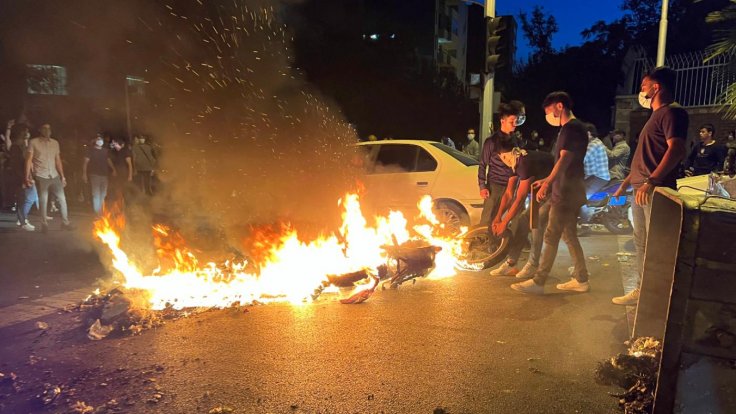The leader of a top Iranian think tank that supports the hardline Islamic regime has said the young women leading the anti-hijab protests are driven by internet porn.
Fundamentalist public speaker Ali-Akbar Raefipour, who is the founder and the head of Masaf Institute, branded the wide-scale Iranian public outrage over the brutal murder of Mahsa Amini as sexual agitation. The influential public speaker, a vocal supporter of the Iranian regime, said the women are "aroused by the internet".

"During two years of covid, teenagers sat at home and couldn't go anywhere. Then they were sexually aroused by the internet. Now what is happening in the streets? It is the discharging of sexual urges on to the issue of women. What is happening is that these two factors have met," Raefipour said in a TV interview, according to the Iran Wire.
The reprehensible, yet sadly hilarious comment doesn't stop there. He went on to say more, discrediting both sex and war. According to the preacher, young Iranians fought off sexual urge by participating in the war against Iraq war. To them, firing heavy duty guns was a useful, equally gratifying, replacement for sex, as if it were!
"The generation of the war [between Iran and Iraq in the 1980s] fired RPGs to discharge these urges. Now where can our young people discharge them?" he said.
The denigration of the protesters is happening on a wide scale. The Iran Wire reports that state-backed newspapers are calling the anti-hijab protesters prostitutes. There is a"link between prostitutes and thugs who wanted to topple a government of the people," wrote a newspaper.
Besides claiming that "sexual urges" contributed to protests, government media outlets have also called women protesters "prostitutes," including the official newspaper Iran that compared female protesters to "Tall Pari", a "famous sex worker"

Another regime prop said the anti-hijab protest sweeping the country, in which hundred of young men and women have been killed so far, is a 'sexual revolution'. "In this recent sedition, enemies are after a sexual revolution," Ruhollah Harizavi, vice-president of the Islamic Proselytizing Organization, said, according to Iran Wire.
Another scholar, a professor at Imam Sadigh University, was less vitriolic in his appraisal of the anti-hijab protest but denigrated the youth as people with no identity. "Some of these young people and teenagers, who are seriously harmed by a lack of identity and values, were at the core of recent unrest. That is why their slogans do not match the demands of the people and are limited to going to swimming pools, mixed-gender parties and removing the hijab," said Mohammad Sadegh Kushaki.
For an ex-Iranian parliamentarian, the protests are like the 'sewage that overflows' and are mainly an internet thing. "These protests live on the internet" and are like a "sewage that has overflowed", said Hamid Rasaee.
Other theories floated by the regime hardliners are that the protests are caused by the pandemic-era over-exposure of the youth to Internet and the influence of TikTok and online games.
"Some of the most exciting computer games were originally designed to bring teenagers to the streets," says a senior official working for the Headquarters for Promoting Virtue and Prohibiting Vice.








